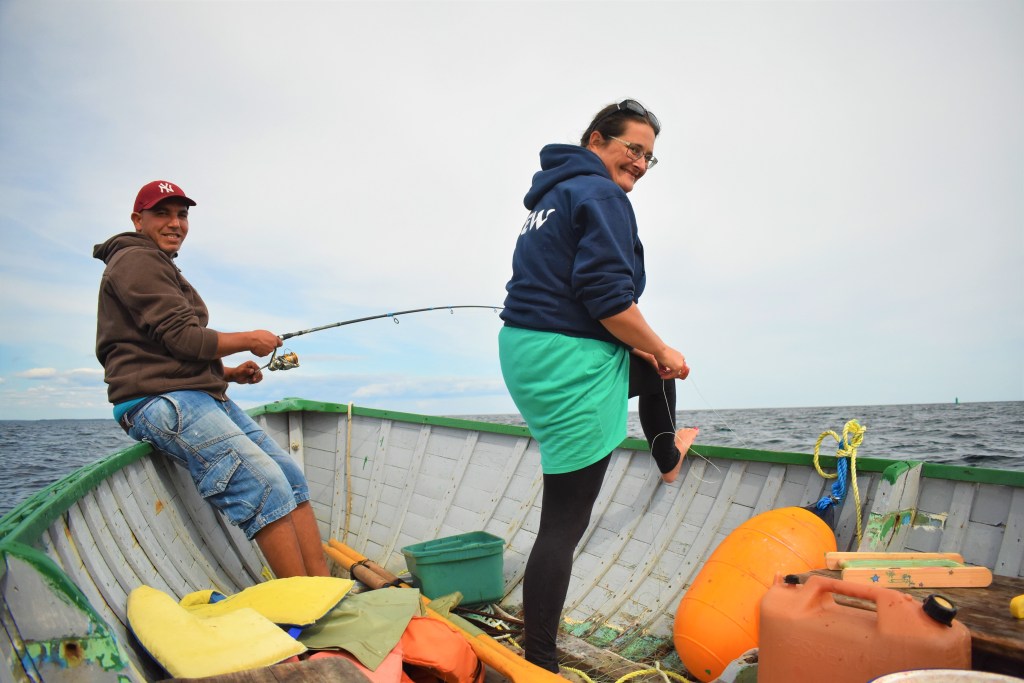
Hitch-hiking in Canada
Oh, it is so nice to be blogging again. The reason for the long break is that I was hitch-hiking across Canada so didn’t have room for small luxuries as a laptop, or towel for that matter… But despite the lack of laptop, I still collected recipes and stories from the outrageously friendly folks who picked us up along the way. To be truthful, of all the travels I have done so far, Canadians have trumped everywhere else for their kindness and friendliness.
The numbers say it all – Cass and I managed to travel from Calgary, Alberta to Halifax, Nova Scotia (including a ‘slight’ detour hitch-hiking around Newfoundland for three weeks), all by hitch-hiking. We travelled a little more than 8,000kms and had lifts from 88 different people (yes, I was counting). Out of those 88, a whopping 11 of them invited us back to their houses to stay. My next few blogs (and the previous one about Leonard) are about just a handful of the different people we met along the way.
Mustafa
Mustafa is Moroccan and has been living in Canada for four years. He met his wife, Cloé , when she pulled up in Agadir on a yacht. Her boss had given the order that Cloé had to stay and look after the boat while it berthed there for four months. Mustafa was working in a fish processing plant in Agadir’s port and gradually the two became friends, then fell in love. They married and lived in Morocco for a while before both moving back to Lunenburg in Canada’s Nova Scotia.
Having lived on the coast most of his life, Mustafa has sea in his blood. He comes from a long line of fishermen and grew up on boats, eating fish fresh from the sea. The way he prepares the mackerel is not a far cry from the way the fishermen in his home country would prepare lunch when they were out on the fishing boats. Mackerel, or whatever other fish they had caught, would be cooked together with parsley, onions, olive oil and lemon. This particular recipe comes from the ‘Cala Iris’, a well known boat from Agadir that now serves as a popular tourist boat, but used to be the boat his father worked on when Mustafa was a small boy.
Cloé
Cloé’s addiction to sailing didn’t come from a childhood of pootling around in dinghys, but from an infatuation with pirates and an overactive imagination. Despite not speaking a word of English (she grew up in rural Quebec) and never having stepped on a boat, at the age of 18 Cloé decided she was going to move to Lunenburg where she would learn to sail, get a job on a tall ship and sail the high seas. A combination of luck and talent saw the dream become a reality; a friend of a friend ran a sail-making shop in Lunenburg who agreed to take her in and show her the ropes (ahem, no pun intended). Before long Cloé was working aboard the Bluenose II and by the age of 23 she was sailing yachts around the Atlantic.
Cloé remembers a particularly terrifying moment where the electrics failed on the yacht she was sailing just before a hurricane swept their way. For more than 48 hours the boat was lurching around in the middle of the storm, slowly sinking as it took on more and more water. Seas were so rough that the nearby tanker and even the Canadian Navy were not able to reach them. Eventually, after 48 nail biting hours, Cloé and her two crew mates were finally rescued. A terrifying experience that resulted in Cloé only taking jobs that were absolutely watertight (wahey!). A decision that eventually led Cloé onto the shores of Morocco and into Mustafa’s life.
Mackerel
We had caught our own mackerel only hours before Mustafa cooked it. Despite there being a storm brewing (hurricane Dorian was on its way) we had all gone out in their friend Kim’s boat. A combination of Kim’s deep knowledge of the fishing areas around there, and an unnervingly quiet ocean, made fishing so easy that it almost lost its fun. Within an hour we had hundreds of fish and headed back to Kim’s jetty where we filleted the fish and took the boat out the water before the storm began.
We now had enough mackerel fillets to feed an army. It was so fresh that at least two fish we carved up and ate raw, dipped into a little soy sauce and wasabi that Kim knocked up in his kitchen whilst we drank tea. Kim estimated that he had already been eating mackerel for breakfast, lunch and supper for the last seven days, but was not yet sick of it, so kept a load of the fillets. Another heap of fillets were delivered to Cloé’s friend who had lent us the fishing lines, and the remaining we took back to Cloé and Mustafa’s flat. This is when the mackerel production line fell into action; Mustafa cooked the fish ‘Moroccan style’, whilst Cloé bottled the rest in kilner jars.
That evening we feasted on crispy fresh mackerel with some boiled corn on the cob and slices of bread, waiting for Hurricane Dorian to come our way.
Moroccan Mackerel
Feeds 3
Ingredients
3 mackerels, filleted
1 small onion, finely diced
1 lemon, juiced
A handful of chopped parsley
1 garlic clove, finely minced
Generous amounts of good quality olive oil
1 tspn ground cumin
1 tspn cumin seeds
½ tspn turmeric
Butter for greasing the tray
Method
Put all of the ingredients into a large bowl and mix. Leave to marinade for at least ½ hour.
Heat the oven at 200.
Grease large, flat baking tray with generous amounts of butter. Place the mackerel skin side down onto the tray. Don’t over crowd the mackerel as you want to sides of the fillets to crisp up nicely.
Bake in the oven until the mackerel is just cooked and the flesh falls apart.
Eat immediately.
Tip: make sure you chop up the onions and garlic as finely as possible. The mackerel doesn’t take long in the oven so you don’t want large chunks of uncooked onion on the fish.

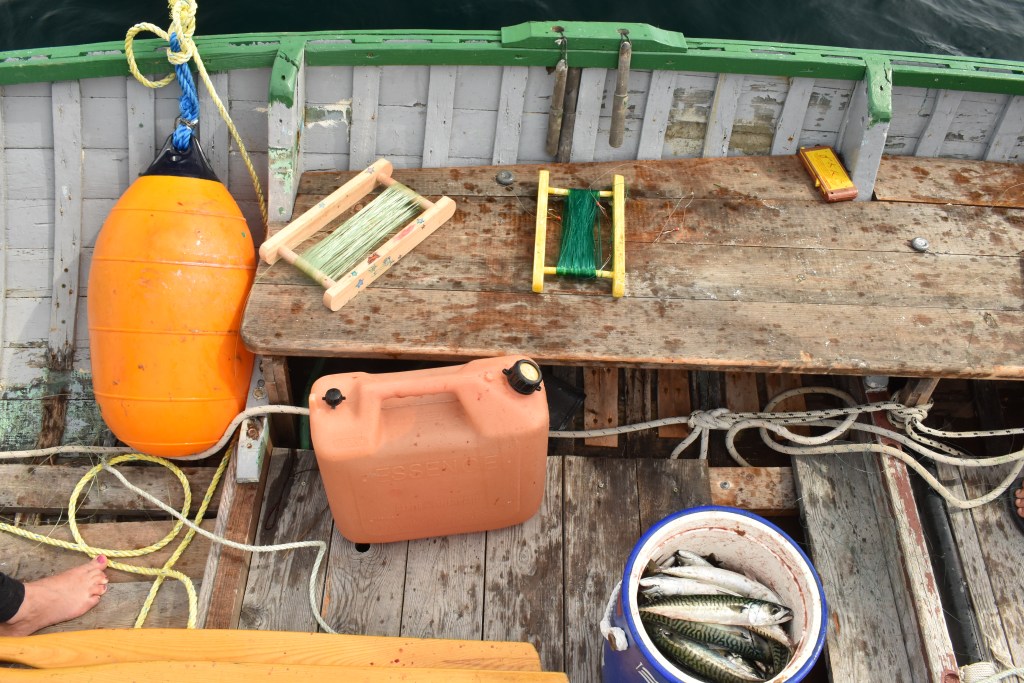
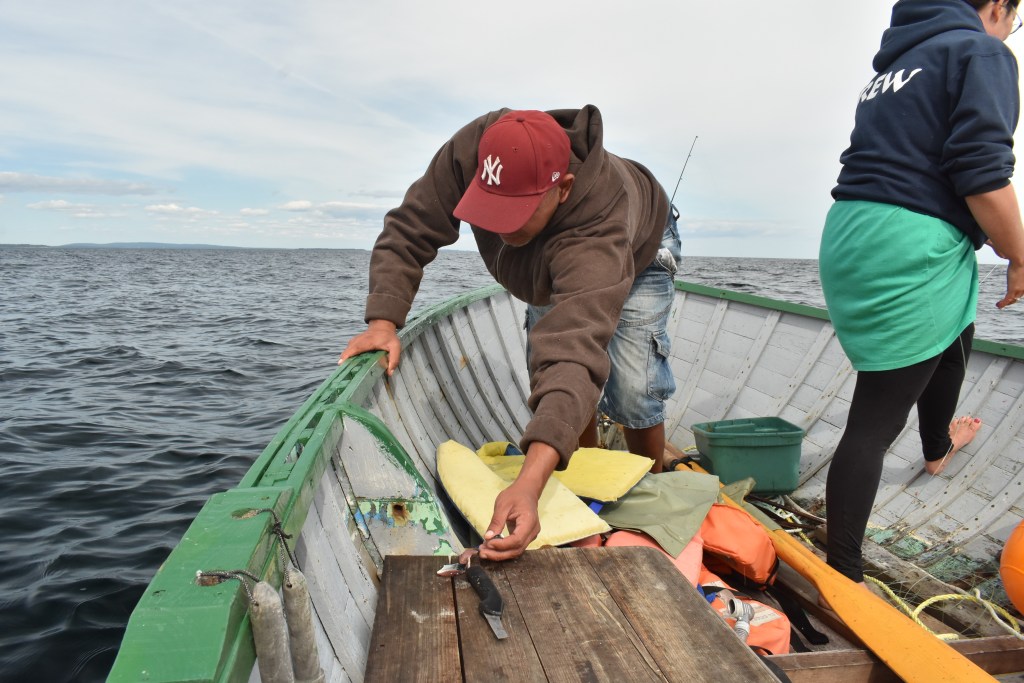
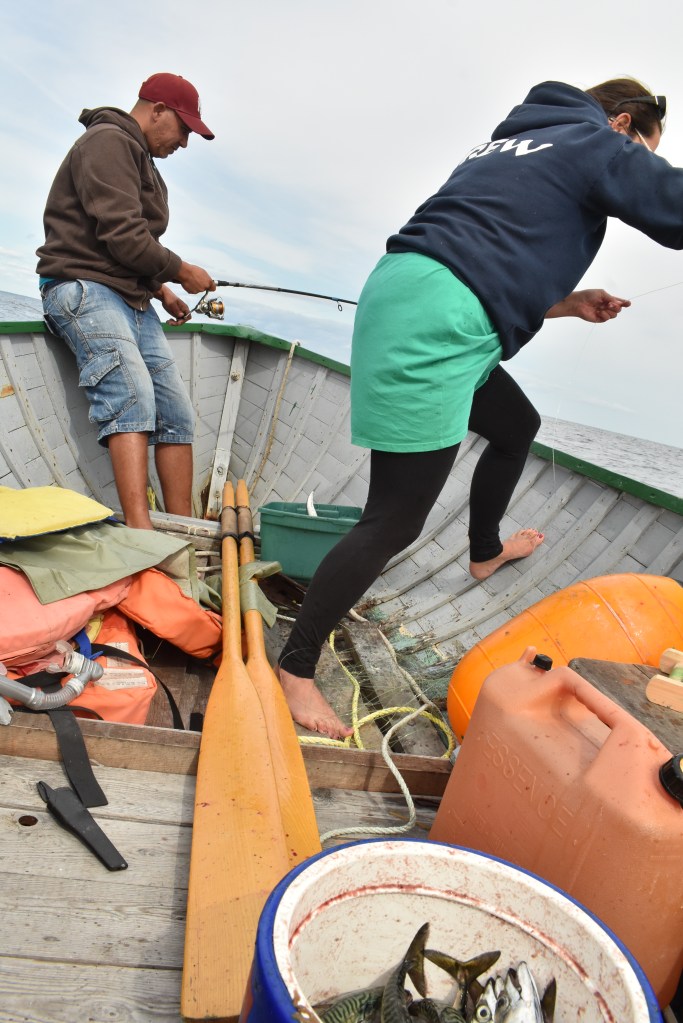
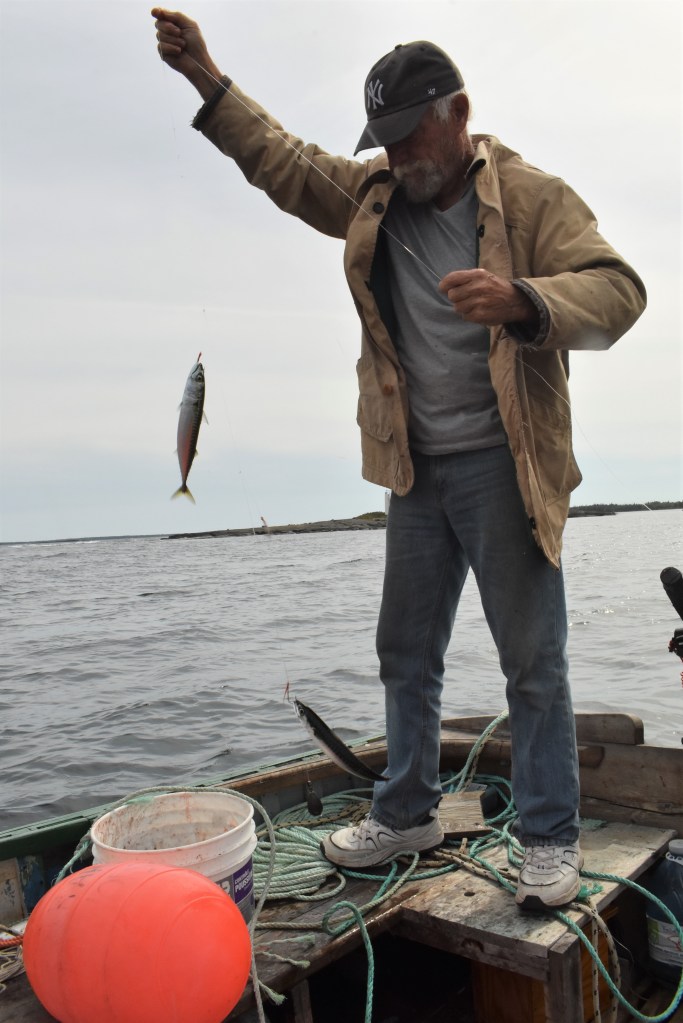
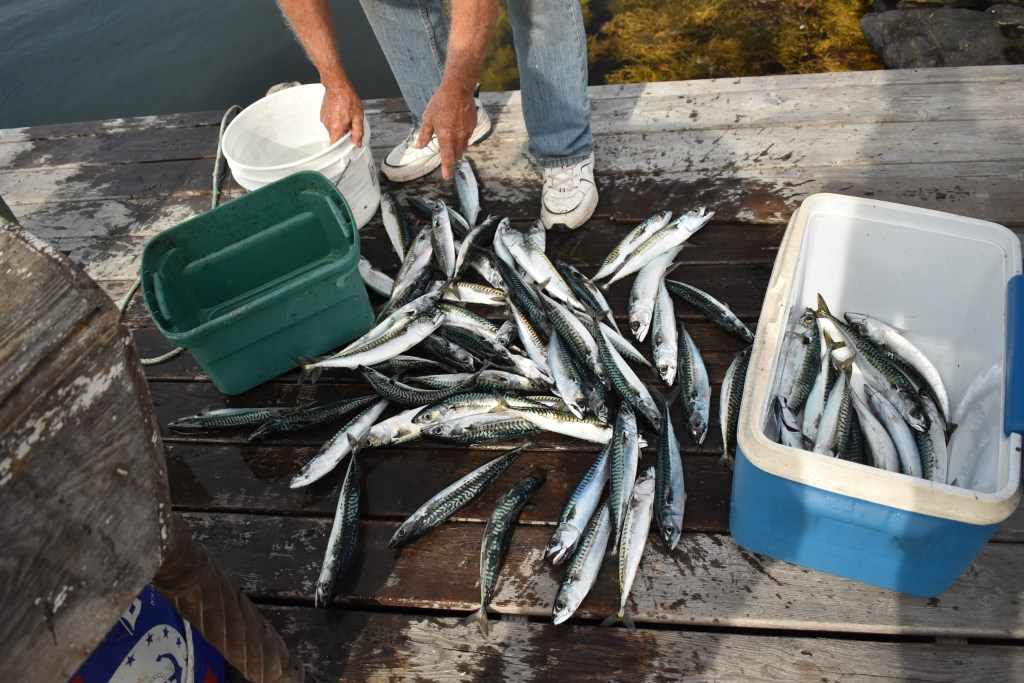
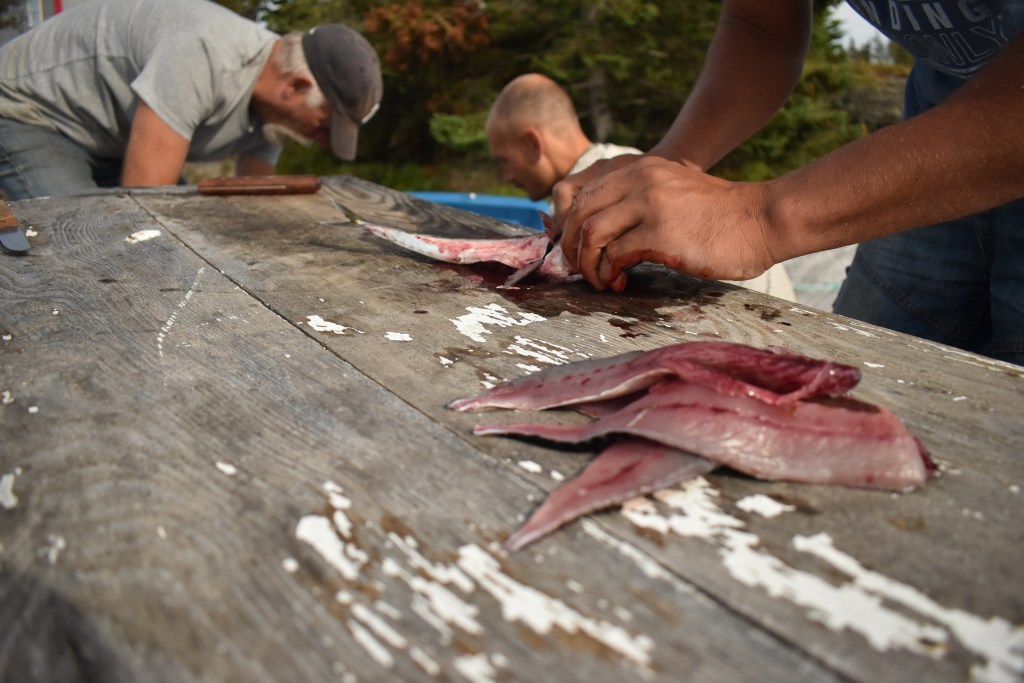
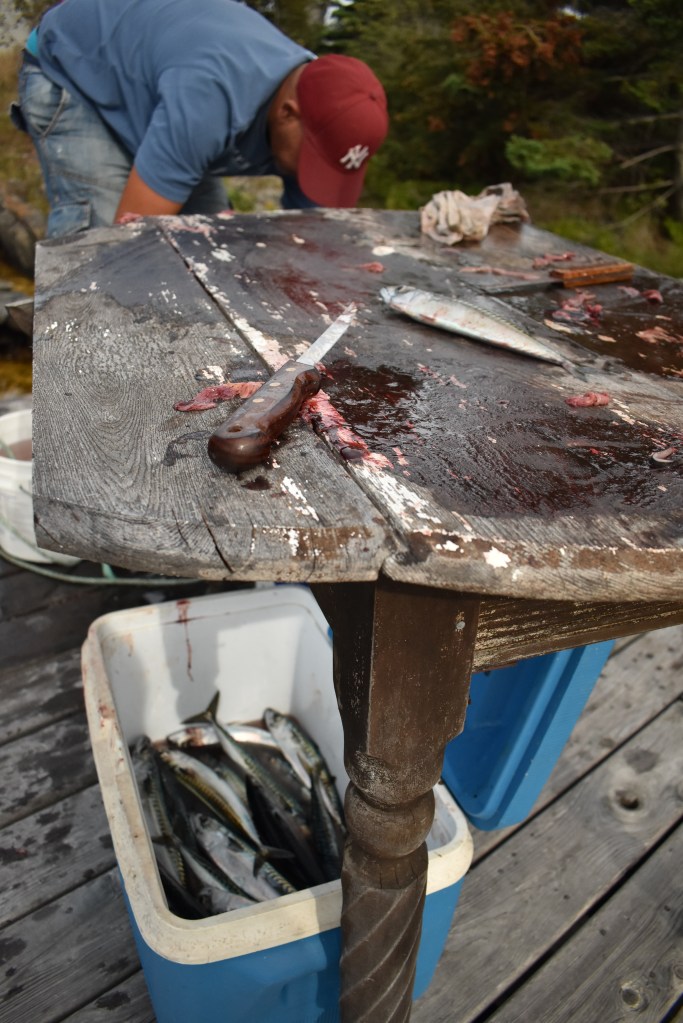
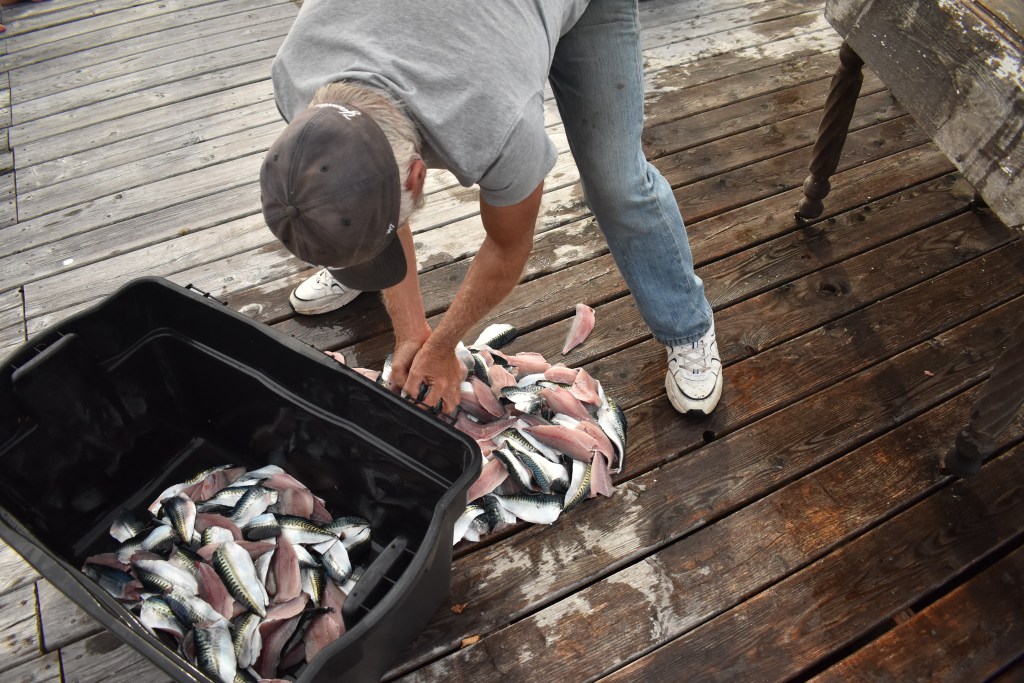
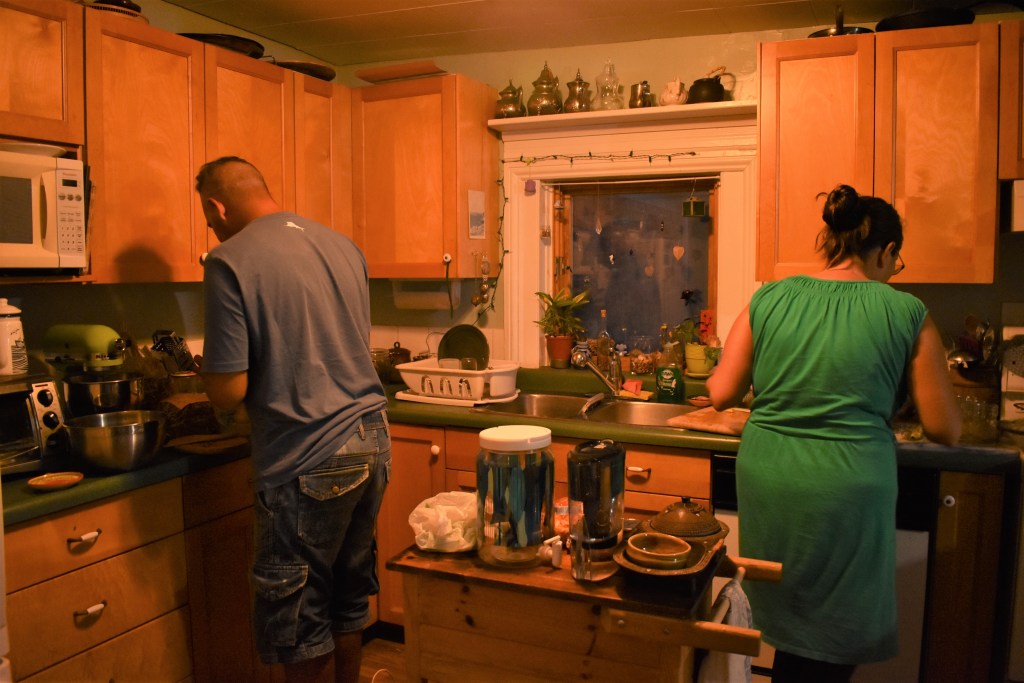
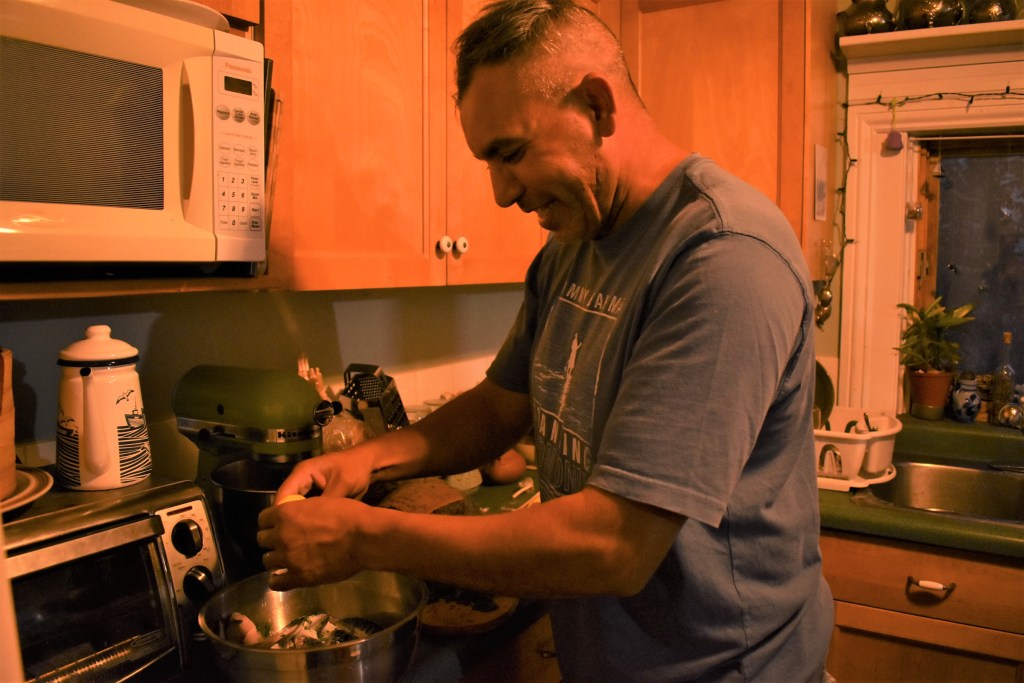
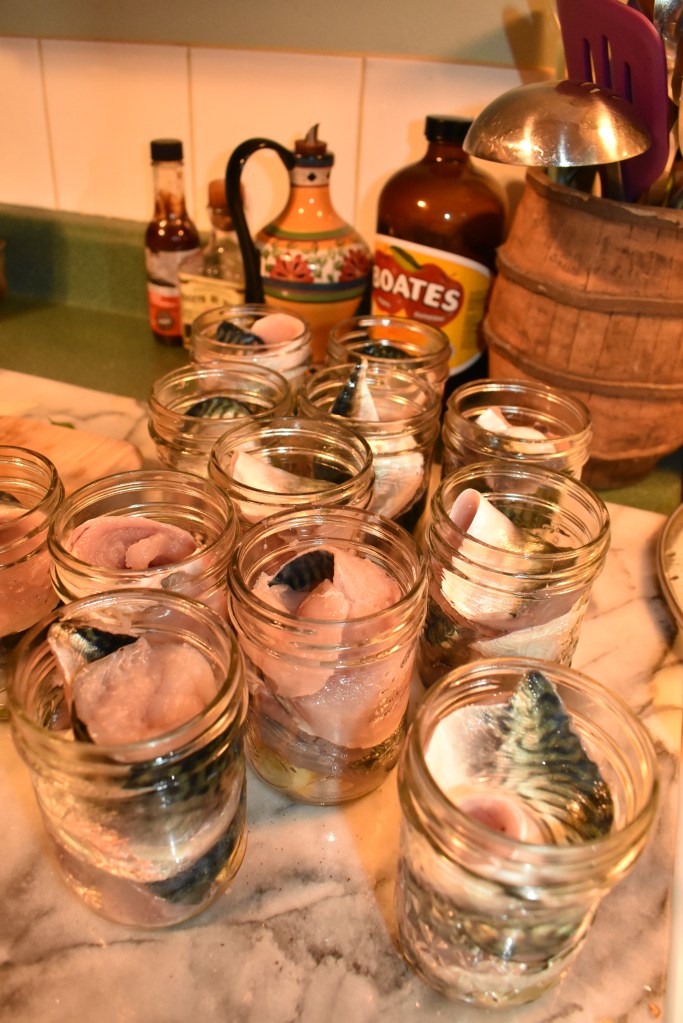
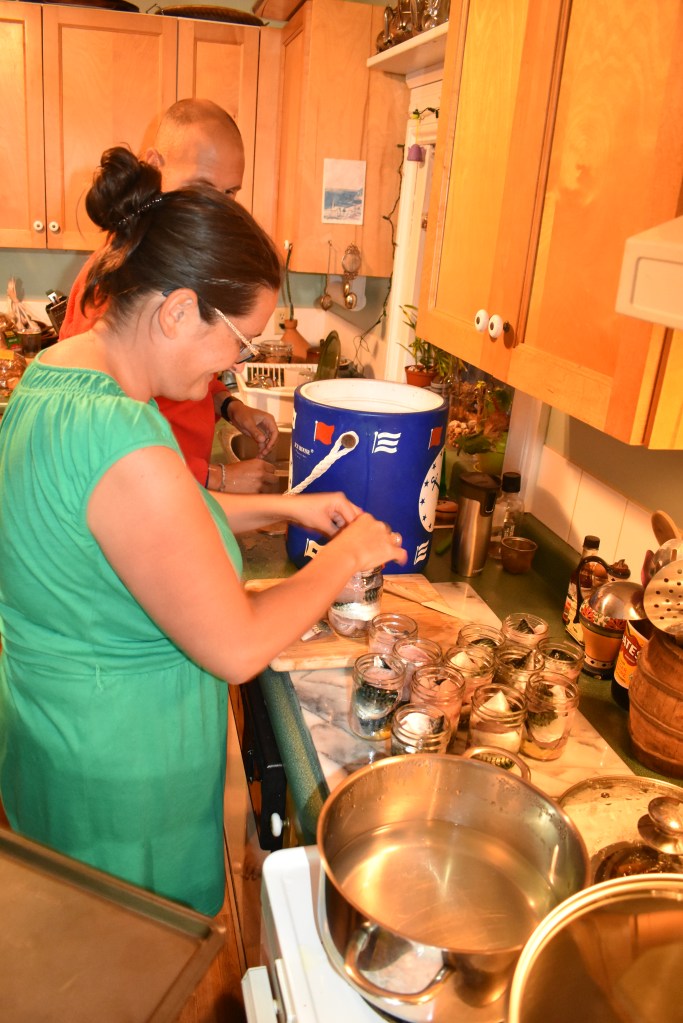
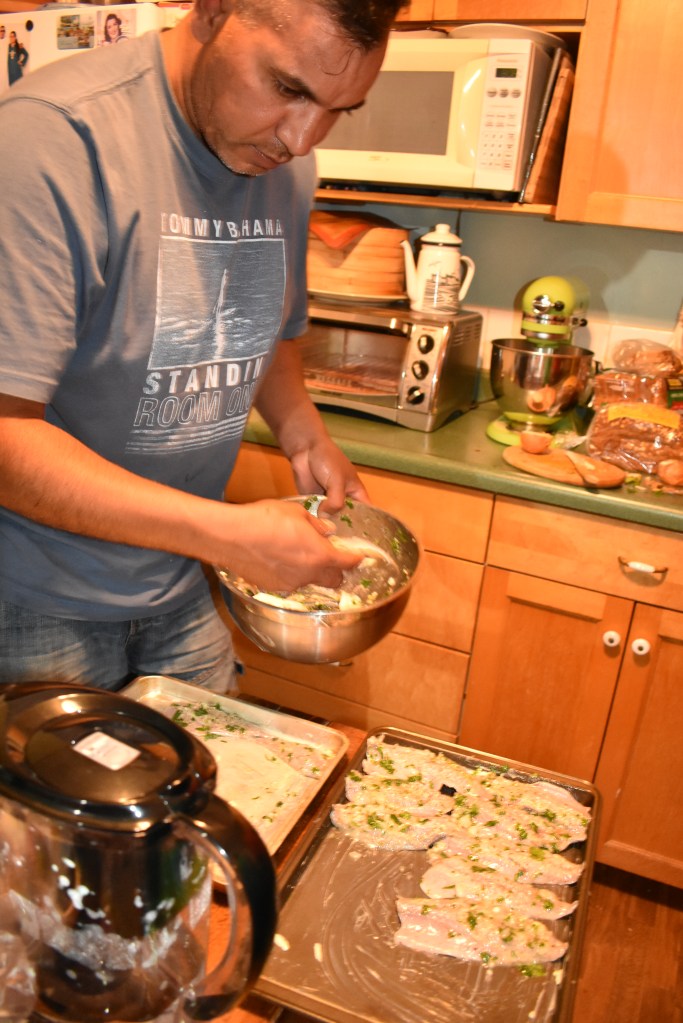
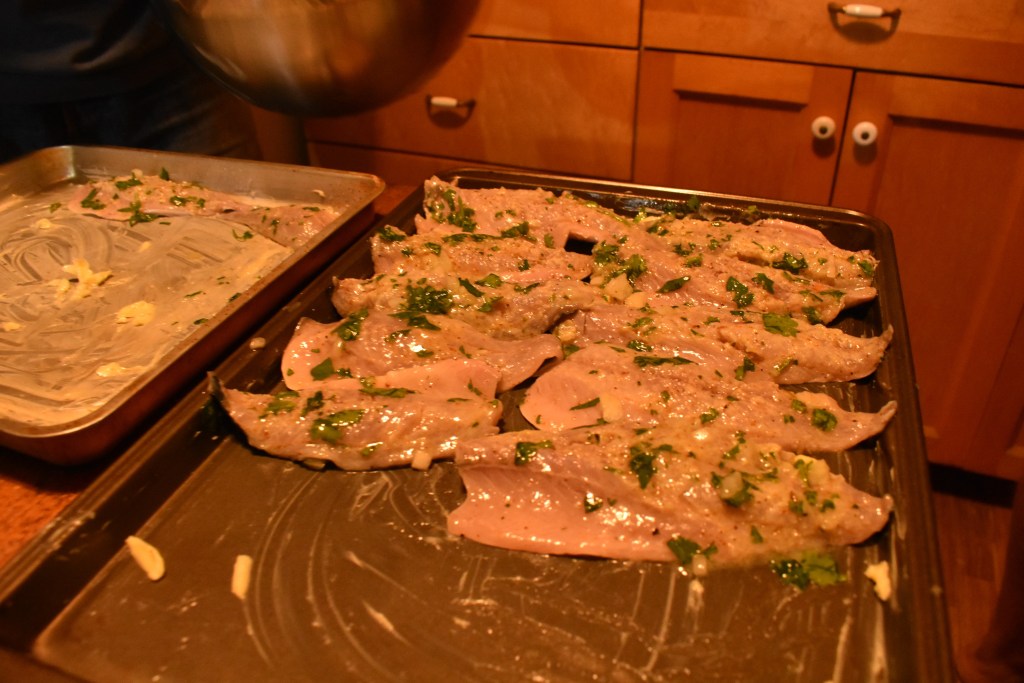
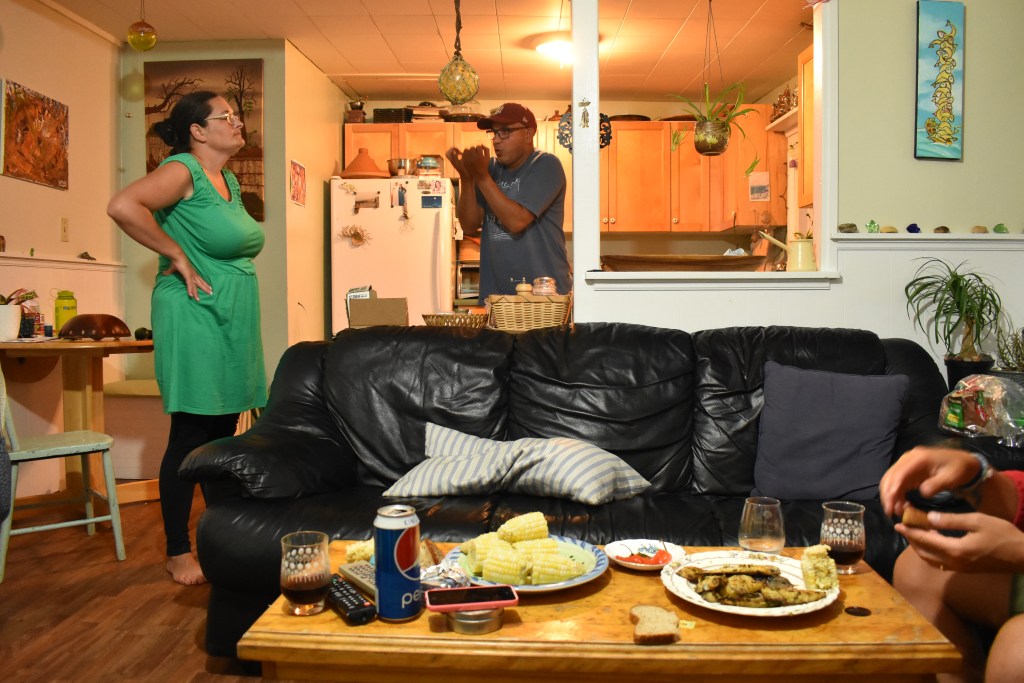
When you come back, don’t forget Vancouver!!! What a most excellent adventure.
LikeLike